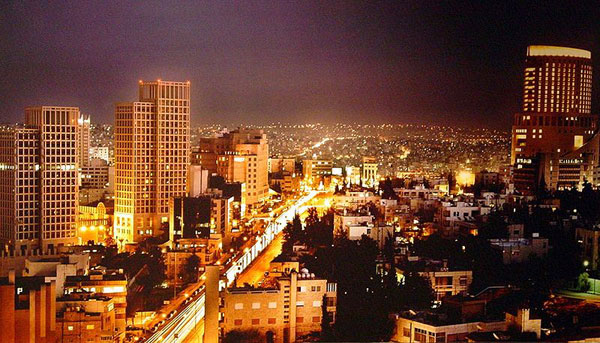Jordan – the timely necessity of exploiting shale oil
Power is the lifeblood on any modern nation and Jordan has suffered more than a few disruptions of the natural gas that has been its fuel of choice for its power stations. The kingdom has relied heavily on natural gas via the Sinai pipeline from Egypt that also supplies Israel. Jordan currently imports around 98% of its energy needs with around 80% flowing through the Sinai Peninsula gas pipeline. Or rather 80% of Jordan’s natural gas would be flowing through the desert to its power stations if the pipeline stayed open long enough.

Since the beginning of 2011 the Sinai Peninsula pipeline has been attacked no less than seven times since the fall of Hosni Mubarak with the most recent attack taking place on 10 November when two improvised explosive devices were reportedly detonated remotely near the town of Al-Arish. The reasons for the campaign against the Sinai Peninsula pipeline could be one or a combination of issues. For instance, many Egyptians are disgruntled with the deal that Mubarak cut with Israel, Bedouin tribes living along the route of the pipeline have been less than happy with the payments they have received for routing the pipeline through their territory, Islamic insurgents or simply something that has just not come up on the radar yet. Indeed, Bedouin tribes were reported as making threats against the pipeline in 2010. The fact is that with seven disrupting attacks on the natural gas pipeline and, with the Egyptian people looking to be heading for an Arab Spring part two scenario, Jordan would do well to consider and implement alternatives quickly. Egypt, even in the throes of its internal troubles, would be wise to secure the Sinai Peninsula pipeline’s flow for much-needed revenues or one day, the customers will have gone elsewhere. Potentially costly legal action has already been instigated in October 2011 by Egyptian Mediterranean Gas, which is part owned by Ampal-American Israel Corp.
Jordan has had to switch its power stations over to diesel fuel in the absence of a reliable supply of natural gas and the cost has been heavy. Jordan’s National Electricity Company reported recently that the total losses due to the natural gas supply disruptions to its power plants have cost around US$1bn up until September 2011 and local media have estimated that the cost up to October is around US$1.2bn.
While many neighbouring countries have substantial fossil fuel reserves to exploit Jordan has, right now anyway, but one, shale oil. Shale oil needs energy to release energy as the shale has to be heated for the oil to flow and it is a trade-off as to whether the amount of energy required and the positive difference in price of the energy released makes the project worthwhile. However, surface mining can be a viable way forward although. For deeper shales, hydraulic fracturing (fracking) is another option. The shale oil reserves in Jordan have been conservatively pegged at around 500bn barrels with viability to extraction price reportedly around US$65/bbl. Of course, not all of this resource can be extracted and it is possible that the estimated reserves could be less or perhaps a great deal more. Whatever the case, Jordan has fossil fuel reserves that could help if move significantly if not totally, along with nuclear and solar power options, towards the utopia of energy self-sufficiency.
Many energy companies are already active in Jordan including, Karak International Oil (KIO), Royal Dutch Shell, Petrobas and oil shale specialist Eesti Energia which has a subsidiary operating in Jordan, Jordan Oil Shale Energy Company (JOSEC). Towards the end of 2010, Eesti Energia said that it had signed an agreement whereby Near East Investment (NEI) and YTL Power International Berhad (YTLPI) will own 5% and 30% of Eesti Energia oil’s shale projects in Jordan with the Estonian based company retaining 65%. The company already has an agreement with the Jordanian government for surface mining at the Attarat um Ghudrun oil shale deposit, which is probably the largest in Jordan. The Eesti Energia partnership, under the first oil shale concession to be granted in Jordan, is planning to construct a 38,000bpd oil plant along with a 900MW shale oil power station at Attarat um Ghudrun, which when built, will be Jordan’s first self sufficient fuel power station and probably the first of many. Reportedly, construction of the power station is set to commence in 2012 with final negotiations set to be completed by the end of 2011.
A subsidiary of UK-registered company, Jordan Energy and Mining Ltd, KIO is not far behind Eesti Energia and has recently signed an agreement to extract and process oil shale from the Al Lajjun, Karak region. The company expects to produce 15,000bpd from 2016 thus contributing around 15% of the oil that Jordan requires. In a statement, Munther Akroush, KIO’s Jordan office director said, “KIO will employ leading edge technology and specialist expertise to unlock the potential of Jordan’s oil shale reserves, the fourth largest in the world. This deal will increase Jordan’s energy self-sufficiency and, ultimately, has the potential to transform the Kingdom from being an importer to an exporter of oil and energy.”
Meanwhile, Shell signed an exploration agreement with the Jordanian government in 2009 and is understood to have drilled over 100 wells in a comprehensive exploration programme. Petrobas is reportedly assessing oil shale possibilities in Jordan and in October 2011, media announced that Jordan was set to invest around US$3bn in shale oil.
Frankly, even with environmental issues and challenges to overcome for major shale oil production in Jordan, it would seem to be a matter of when rather than if the kingdom can become energy self-sufficient and perhaps even an exporter. With the situation in Egypt only likely to get worse before it gets better, Jordan may well accelerate its shale oil plans and be able to cut its natural gas umbilical cord from Egypt within a matter of a few short years.
No Responses
Leave a Reply
Make sure you enter the * required information where indicated.
You must be logged in to post a comment.

 Click here to read the Q4 2011 Issue of Industrial Fuels & Power
Click here to read the Q4 2011 Issue of Industrial Fuels & Power 

